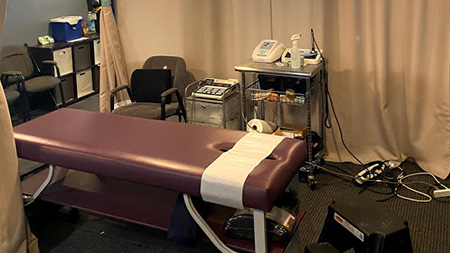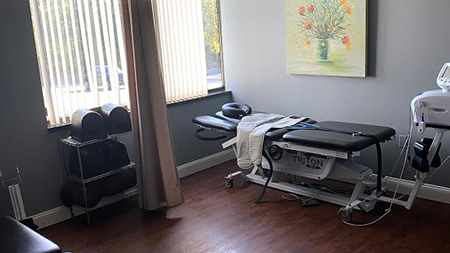
Health Essentials - The 5 Factors of Health
Hey there. Dr. James Fedich from Village Family Clinic coming at you with a quick video here. This is called The 5 Factors of Health. So, five factors. I'm getting asked every day here: what's the best way to remain healthy? So we're going to go over that today in our five factors of health.
So, there's five real ways. There's a lot of videos out there about how to be healthy, and we're going to really simplify it in these five factors here. Alright, so just five simple things to keep you a little bit healthier.
So, number one is going to be movement. Alright? So, as we keep moving, we're keeping active, we're keeping those joints moving, keeping things lubricated and loose. Movement is really the key to life. So, exercise, walking, doing these types of things every day are really, really important. Regular exercise strengthens the muscles, improves circulation, keeps our joints strong and healthy—some sort of movement.
I get asked every day in the clinic, you know, what's the best type of exercise? Typically, I'll tell patients it's the one that you like and enjoy—and then you'll actually do. And again, humans are really made for walking. Just walking every day is really, really important.
Number two is going to be nourishment. So, I wish I could spend forty-five minutes with every patient every visit to talk about food and nutrition. It's something I'm very passionate about, studied, I've learned, I've been to a lot of nutrition seminars, I take a lot of different supplements.
But here's some stuff. We want clean, whole foods. You know, the more natural—foods that grow in the ground or are walking around (animals, that type of thing)—it'll be much better for you than processed foods. You know, white flour, wheat, sugar. I've always said the easiest way to lose some weight is to stay away from the white stuff—white flour, white sugar. That'll really help you a lot.
Less processed food, more vegetables—meats and vegetables if you eat meat.
The other big thing is hydration. A lot of people are very dehydrated. You know, a big chunk of the population is chronically dehydrated. So it's really, really important to stay hydrated as well. Alright, so that's number two.
Number three is going to be rest. So, I have a whole sleep talk—maybe you've probably seen it. Most Americans are not getting enough sleep. Now, healthy adults need seven to eight hours of sleep. Young children need actually twelve hours of sleep. So at two or three years old, they need twelve hours a day, even more. Babies need sixteen to eighteen hours of sleep.
I just treated a high school student yesterday. She said she's doing homework till three in the morning, then wakes up at six to go to school. That's going to create some big problems. We've got to get more rest than that.
So, some big things: rest. Turn off your electronics before bed. Yeah, I had another patient—a guy who’s on his iPad at 10:00. “Doctor, I can't fall asleep.” It's because you're on your iPad, all exposed to all that blue light. Quick, easy tip with that too—there's a night mode on your electronics. We should still put them down an hour before bed, but there's a night mode on there, which is going to take out the blue light and help you sleep a little better.
So, get off your electronics, get a bedtime routine, try to get to sleep at the same time every day, and get some proper rest.
Number four is going to be mindset. So, you know, it's a stressful world we live in. A lot going on out there. A lot of people get stressed, working up to that. And that'll help us decrease sleep and make us sick. You won't believe how much stress can make us sick. The more research we do, the more we find out how problems are caused by being sick—or by stress from making people sick.
So, proper things: good managing stress, positive mental attitude. Exercise helps decrease stress as well. Things like meditating are great. I try to meditate every day at lunch. And exercise, sunlight, proper nutrition—all decrease stress. So just try to think positively. I know it's not always easy.
Last but not least is proper nervous system function. So, our nervous system is the master control of our whole body. Your heart doesn't beat unless the brain tells it to. So, getting regular chiropractic care, removing nerve interference, or regular adjustments is going to allow the body to function properly.
And we show people this a lot. These are vertebrae—we've got 24 movable bones in here. And in between each one is a little nerve, and those nerves go everywhere. There's nerves to your lungs, heart, stomach, legs—everywhere is a nerve that comes out of the spine.
And there are small misalignments, or subluxations, chiropractors call them. We can put just a little pressure on there, and that nerve won’t work properly. In fact, scientists found the weight of a nickel—just a nickel—on one of those nerves caused it to not work properly and caused a problem.
So, keeping all those nerve channels open, keeping our nervous system working as well as possible, is a real way to maintain proper health.
So, hopefully that helps, and we’ll talk to you soon.












